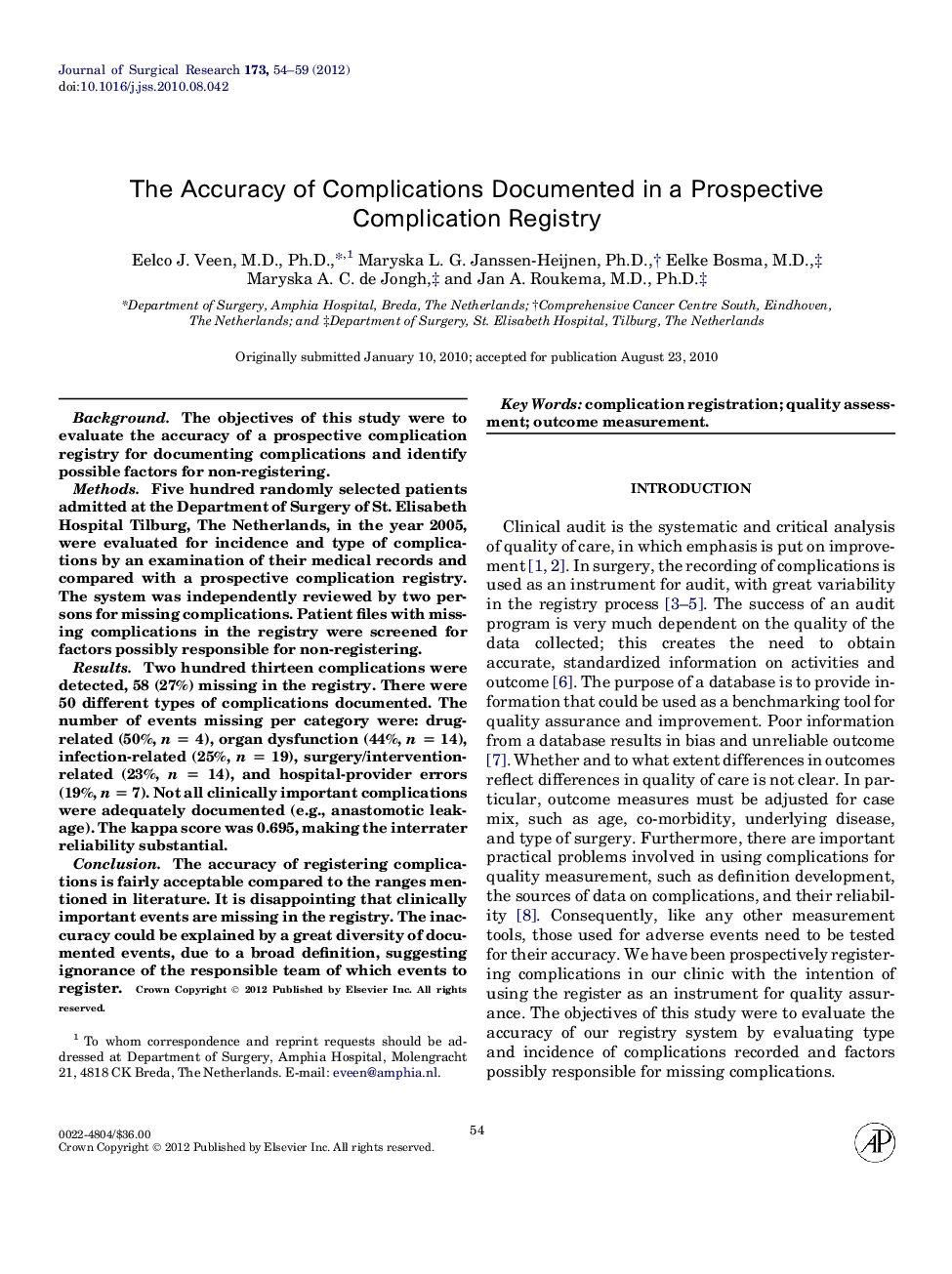| Article ID | Journal | Published Year | Pages | File Type |
|---|---|---|---|---|
| 4301537 | Journal of Surgical Research | 2012 | 6 Pages |
BackgroundThe objectives of this study were to evaluate the accuracy of a prospective complication registry for documenting complications and identify possible factors for non-registering.MethodsFive hundred randomly selected patients admitted at the Department of Surgery of St. Elisabeth Hospital Tilburg, The Netherlands, in the year 2005, were evaluated for incidence and type of complications by an examination of their medical records and compared with a prospective complication registry. The system was independently reviewed by two persons for missing complications. Patient files with missing complications in the registry were screened for factors possibly responsible for non-registering.ResultsTwo hundred thirteen complications were detected, 58 (27%) missing in the registry. There were 50 different types of complications documented. The number of events missing per category were: drug-related (50%, n = 4), organ dysfunction (44%, n = 14), infection-related (25%, n = 19), surgery/intervention-related (23%, n = 14), and hospital-provider errors (19%, n = 7). Not all clinically important complications were adequately documented (e.g., anastomotic leakage). The kappa score was 0.695, making the interrater reliability substantial.ConclusionThe accuracy of registering complications is fairly acceptable compared to the ranges mentioned in literature. It is disappointing that clinically important events are missing in the registry. The inaccuracy could be explained by a great diversity of documented events, due to a broad definition, suggesting ignorance of the responsible team of which events to register.
